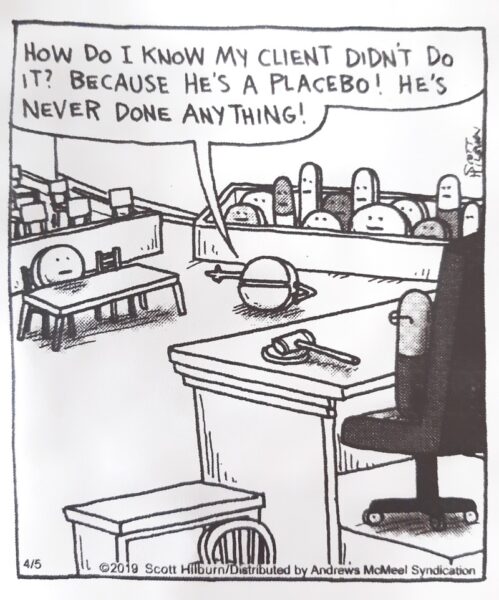Placebos keep working, measles comes home, when tirzepatide keeps working, and more
22 Aug 2024
Posted by Andrew Kantor
Here come the Covid vaxes
By the time you read this, the FDA may have approved this year’s Covid-19 vaccines. These will be targeting the KP.2 variant — one of the FLiRT clan. Pfizer’s and Moderna’s seem to be on track for approval, but Novovax’s non-mRNA shot is still up in the air.
ICYMI, Covid has been … well, “surging” might be a bit strong, but “picking up steam” is a good description, so the sooner the better.
Long Covid clue
Researchers at the University of Colorado think they’ve found another clue to what causes long Covid. The disease leaves behind antigens that can stick around for a year after the infection is cleared. Those antigens, the Coloradoans say, cause cortisol levels in the brain to drop and even stay down.
Their hypothesis, based on a rat study:
Covid antigens lower cortisol, which serves to keep inflammatory responses to stressors in check in the brain. Once a stressor arises—whether it be a bad day at work, a mild infection or a hard workout—the brain’s inflammatory response is unleashed without those limits and serious symptoms come screaming back.
They don’t think cortisol treatment would help (“they would not get at the root cause and come with a host of side effects”), but finding where those antigens are hiding and eliminating them could be an effective treatment.
Measles in Georgia
The Georgia Department of Public Health reports a fifth case of measles this year — this one’s in the Atlanta. In a shock to no one, the patient wasn’t fully vaccinated. “DPH is working to identify anyone who may have had contact with the individual while they were infectious.”
Good news about nothing
Not only can a placebo work, it can work even if the patient knows it’s a placebo.
Not only can a known placebo work, it can even work (to reduce stress, at least) when administered remotely — i.e., when patients’ only interaction with the prescriber is via Zoom.
That’s what Michigan State researchers found when testing the non-drug’s effect during the pandemic to help reduce stress. Half the 64 participants got no treatment, while the other half (“non-deceptive placebo group”) got education about placebos and then the placebos themselves, which they were instructed to take by an online practitioner.
Result: “[T]he non-deceptive group showed a significant decrease in stress, anxiety, and depression in just two weeks compared to the no-treatment control group.”

Naloxone, opioid abuse, and pregnancy
To protect the newborns of people with opioid use disorder, it’s better to treat the pregnant moms with a combo of buprenorphine and naloxone rather than buprenorphine alone. That comes from a study of 8,700 pregnant women over 18 years.
“According to the authors, buprenorphine/naloxone exposure during pregnancy was associated with a lower risk for neonatal abstinence syndrome” as well as NICU admission.
Tirzepatide’s newest trick
Eli Lilly claims “slashed the risk of developing type 2 diabetes by 94% in adults with prediabetes who also are obese or overweight” in a three-year study.
What’s interesting is that once they stopped, although the patients gained back the weight they lost, their risk of developing diabetes was still cut by 88%.
Latest drugs in shortage
Per the American Society of Health-System Pharmacists:
- Buprenorphine hydrochloride injection
- Dihydroergotamine mesylate injection
- Fluconazole injection
- Glipizide tablet, extended release (discontinued)
- Memantine hydrochloride capsule, extended release (discontinued)


